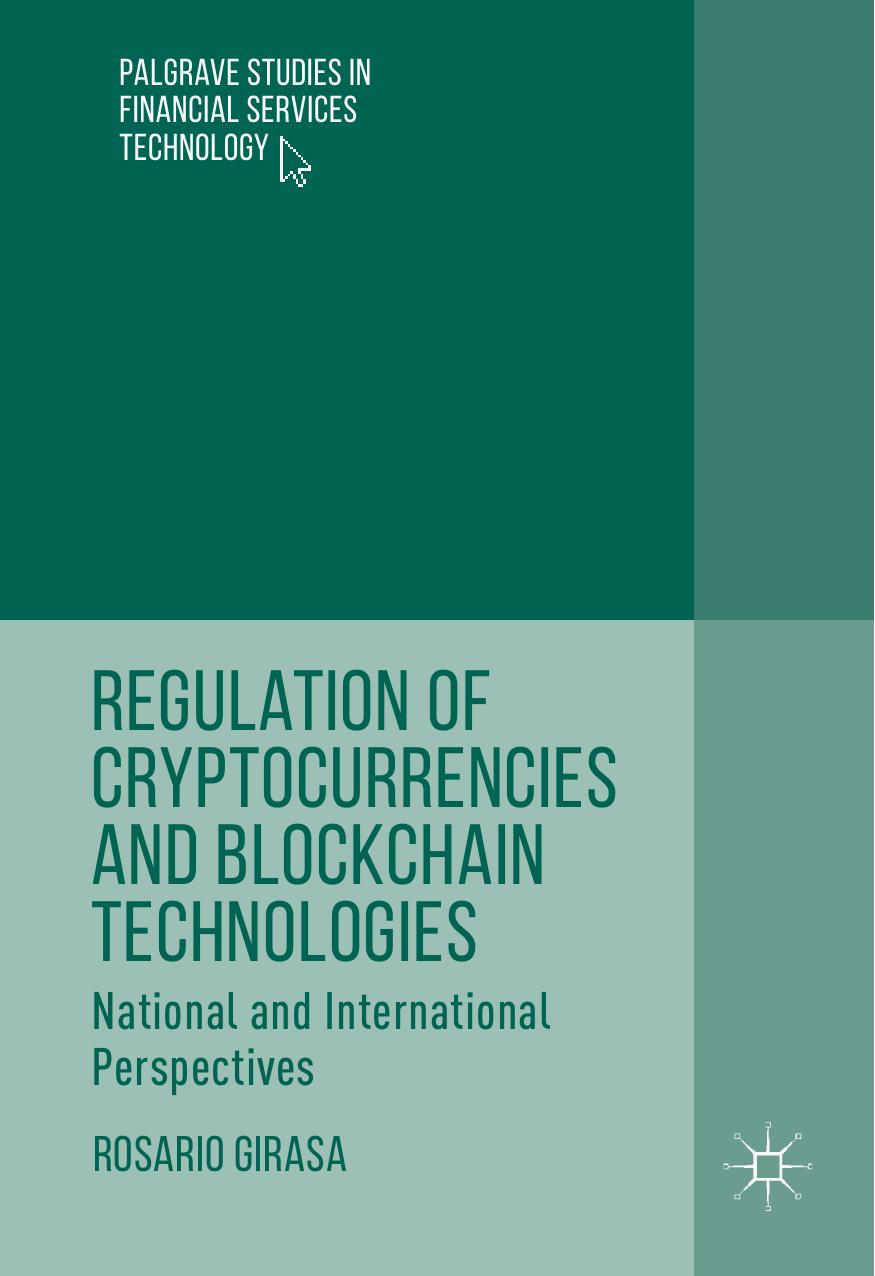Regulation of Cryptocurrencies and Blockchain Technologies by Rosario Girasa

Author:Rosario Girasa
Language: eng
Format: epub, pdf
Publisher: Springer International Publishing, Cham
Proposed Uniform Virtual Currency Codes
Uniform Regulation of Virtual-Currency Business Act
The Uniform Law Commission50 recommended and approved for enactment by all the states a proposed Uniform Regulation of Virtual-Currency Business Act.51 In essence, the proposal would require that businesses whose products and services include the exchange of such currencies for cash, bank deposits, or other virtual currencies, or their transfer between customers, or provide custodial or fiduciary services, be licensed and be subject to regulations to protect customers. It states that the proposed regulation is modeled on the Uniform Money Services Act and conforms to FinCEN’s guidance as well as the Framework issued by the Conference of State Bank Supervisors discussed below.52 The closest statute and regulations from which the Model Act is framed is that of New York’s “BitLicense” regulation discussed previously.
Among the “novel” features of the proposed Act that differ from state “money services” or “money transmitter” statutes are the provisions: (a) for a three-tier system for determining whether a provider is to be deemed exempt from the Act—(1) persons engaged only in minor activity; (2) an intermediate registration status modeled as an “on-ramp” or “regulatory sandbox” that has simpler regulatory requirements so as to facilitate virtual currency innovations; and (3) a full-fledged licensure system for providers with a designated volume of business; (b) provisions requiring that the virtual currency business with “control” over virtual currency held by state residents must maintain a specified type of virtual currency sufficient to satisfy the requirements of each type of virtual currency for the benefit of the states’ residents together and to favor the interests of the said persons place control under the said control over the interests of creditors of the licensee; (c) heightened emphasis of cross-state reciprocal licensure to lower regulatory costs of the providers; and (d) more flexible provisions on net worth and reserve requirements than are currently found in states’ money transmitter statutes where the provider with control over virtual currency customers’ accounts has complied with custodial arrangement as stated in (b) above.53
To date, no state has enacted the Uniform Regulation but rather has generally taken the approaches of licensing firms engaged in the exchange of virtual currencies (somewhat comparable to the suggested Model Code), requiring registration of firms so engaged, or simply posting warnings concerning the potential risks to consumers who trade in the currencies. The Uniform Regulation was opposed vigorously by the Bitcoin Foundation which stated that its adoption “would discourage inclusive financial innovation arising out of blockchain technology and cryptocurrencies like Bitcoin.”54 The Executive Director of the Foundation, Llew Claasen, alleged that the proposed regulation, modeled on New York’s regulation, has caused small businesses in the financial technology business to be driven out of the state by its alleged onerous licensing and compliance requirements.55 Claasen ’s position is that it may be premature to regulate cryptocurrencies due to the variety of types being created whereby some may be akin to use as a commodity, others as a store of value, and some as a medium of exchange.
Download
Regulation of Cryptocurrencies and Blockchain Technologies by Rosario Girasa.pdf
This site does not store any files on its server. We only index and link to content provided by other sites. Please contact the content providers to delete copyright contents if any and email us, we'll remove relevant links or contents immediately.
International Integration of the Brazilian Economy by Elias C. Grivoyannis(111059)
The Radium Girls by Kate Moore(12028)
Turbulence by E. J. Noyes(8049)
Nudge - Improving Decisions about Health, Wealth, and Happiness by Thaler Sunstein(7706)
The Black Swan by Nassim Nicholas Taleb(7129)
Rich Dad Poor Dad by Robert T. Kiyosaki(6632)
Pioneering Portfolio Management by David F. Swensen(6300)
Man-made Catastrophes and Risk Information Concealment by Dmitry Chernov & Didier Sornette(6019)
Zero to One by Peter Thiel(5802)
Secrecy World by Jake Bernstein(4753)
Millionaire: The Philanderer, Gambler, and Duelist Who Invented Modern Finance by Janet Gleeson(4478)
The Age of Surveillance Capitalism by Shoshana Zuboff(4292)
Skin in the Game by Nassim Nicholas Taleb(4248)
The Money Culture by Michael Lewis(4207)
Bullshit Jobs by David Graeber(4190)
Skin in the Game: Hidden Asymmetries in Daily Life by Nassim Nicholas Taleb(4006)
The Dhandho Investor by Mohnish Pabrai(3764)
The Wisdom of Finance by Mihir Desai(3746)
Blockchain Basics by Daniel Drescher(3582)
